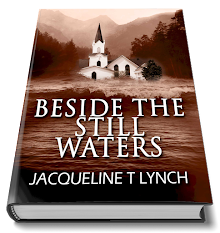You can see Boston through the masts, which are truncated in this shot. The USS Constitution was undergoing a little refurbishment when these photos were taken two years ago. She’s presentable again, now on the 200th anniversary of the War of 1812, when Constitution came to fame.
She was launched long before, however, in October 1797, in Boston, not far from where Constitution remains berthed, still a commissioned ship in the US Navy, still the oldest commissioned warship afloat. She last sailed, briefly, under her own power in 1997 as part of her 200th anniversary. That had been for the first time since 1881.
New England nearly seceded over the war at the Hartford Convention, not wanting an interruption of trade with Great Britain.
We invaded Canada a few times, and were repelled each occasion. The final hopes of an autonomous state of Indian tribal control in the Midwest (or Northwest Territory as it was called then) -- supported by Great Britain, were dashed.
The peace treaty was finally signed in Belgium in 1815, but the Battle of New Orleans happened after that. Britain juggled the Napoleonic War at the same time, but when they finally dispatched Napoleon in 1814, they found time to burn Washington, D.C. And Francis Scott Key observed from the deck of a ship wondering in poetic form if the flag, or “Star Spangled Banner” was still there.
That’s a lot of unrelated, overlapping stuff to happen in war not often remembered today.
Though she did defeat four British warships in battle, the USS Constitution’s contributions did not affect the outcome of the War of 1812, but it provided enormous symbolism of a strong new nation. If the Revolutionary War gave us our independence from Great Britain, the War of 1812 solidified it politically, militarily, and especially psychologically. It was really our first taste of nationalism. A few decades after that Era of Good Feeling, national unity dissipated, bitter regionalism came back and led to the American Civil War.
The USS Constitution continues to remain an important symbol. “Old Ironsides”, a nickname earned in the War of 1812 after defeating the HMS Guerriere because the enemy’s cannonballs seemed to bounce off her, was also immortalized, of course, in poetry. This famous work of 1830 by Oliver Wendell Holmes, Sr. was used to promote the ship’s value for American prestige and to stir public support for it not to be decommissioned. The public responded, as it always does, to this sleek frigate with the patriotic legend attached.
Ay, tear her tattered ensign down!
Long has it waved on high,
And many an eye has danced to see
That banner in the sky;
Beneath it rung the battle shout,
And burst the cannon's roar;--
The meteor of the ocean air
Shall sweep the clouds no more.
Her deck, once red with heroes' blood,
Where knelt the vanquished foe,
When winds were hurrying o'er the flood,
And waves were white below,
No more shall feel the victor's tread,
Or know the conquered knee;--
The harpies of the shore shall pluck
The eagle of the sea!
Oh, better that her shattered hulk
Should sink beneath the wave;
Her thunders shook the mighty deep,
And there should be her grave;
Nail to the mast her holy flag,
Set every threadbare sail,
And give her to the god of storms,
The lightning and the gale!
She is not plucked apart, or when she is, she’s always put back together again. For more on the USS Constitution, have at look at the official Navy website, and here for the museum at the Charlestown Navy Yard where you can visit the ship.
















2 comments:
It sometimes feels as if the War of 1812 had to happen as some sort of leftover business from the Revolutionary War. You say it solidified the USA's independence, particularly psychologically. The invasions into Canada had the same impact on our national consciousness. The American settlers in Upper Canada and the Loyalists became one nation in the post-war mythology.
Yes, one could say it accomplished the same optimistic effect in Canada. One wonders, had New England gone through with secession, would they have attached themselves in some sort of arrangement with Canada? Would there be more Canadian flags flying before restaurants, hotels, pavilions and tourist info centers than there are now? She said, bemused.
Post a Comment